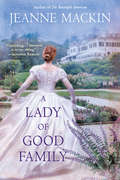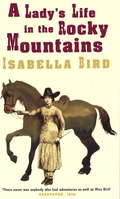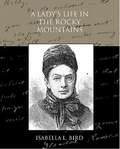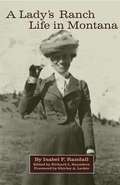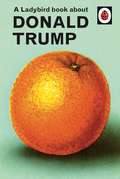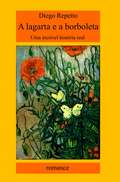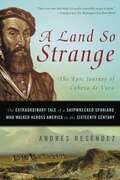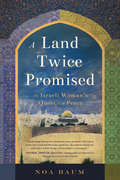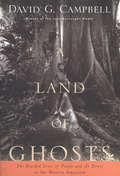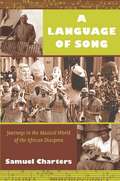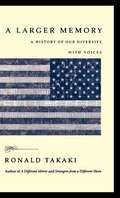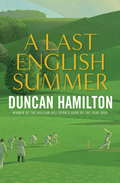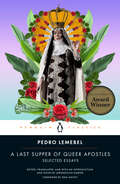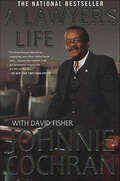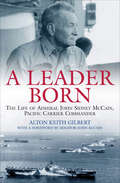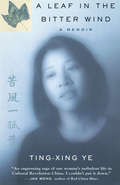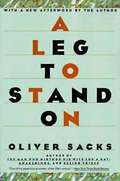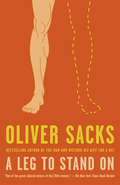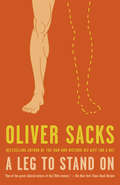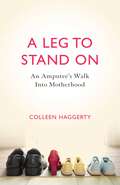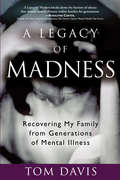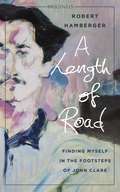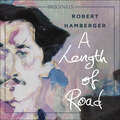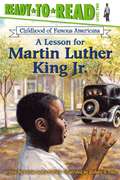- Table View
- List View
A Lady of Good Family
by Jeanne MackinFrom the author of The Beautiful American comes a richly imagined, beautifully written novel about historical figure Beatrix Farrand, one of the first female landscape architects. Raised among wealth and privilege during America's fabled Gilded Age, a niece of famous novelist Edith Wharton and a friend to literary great Henry James, Beatrix Farrand is expected to marry, and marry well. But as a young woman traveling through Europe with her mother and aunt, she already knows that gardens are her true passion. How this highborn woman with unconventional views escapes the dictates of society to become the most celebrated female landscape designer in the country is the story of her unique determination to create beauty and serenity while remaining true to herself. Beatrix's journey begins at the age of twenty-three in the Borghese Gardens of Rome, where she meets beguiling Amerigo Massimo, an Italian gentleman of sensitivity and charm--a man unlike any she has known before....
A Lady's Life In The Rocky Mountains (Virago classic non-fiction)
by Isabella L. BirdBorn in 1831, Isabella, daughter of a clergyman, set off alone to the Antipodes in 1872 'in search of health' and found she had embarked on a life of adventurous travel. In 1873, wearing Hawaiian riding dress, she rode on her spirited horse Birdie through the American 'Wild West', a terrain only recently opened to pioneer settlement. Here she met Rocky Mountain Jim, her 'dear (one-eyed) desperado', fond of poetry and whisky - 'a man any women might love, but no sane woman would marry'. He helped her climb the 'American Matterhorn' and round up cattle on horseback.The wonderful letters which make up this volume were first published in 1879 and were enormously popular in Isabella Bird's lifetime. They tell of magnificent unspoilt landscapes and abundant wildlife, of small remote townships, of her encounters with rattlesnakes, wolves, pumas and grizzly bears and her reactions to the volatile passions of the miners and pioneer settlers.
A Lady's Life in the Rocky Mountains
by Isabella L. BirdIsabella L Bird (1831 - 1904) was a 19th century British traveler and writer. Since her father was a Church of England priest the family moved many times during her childhood. Bird traveled to Colorado when she heard the air was very healthy. She covered the 800 miles on horseback riding like a man and not sidesaddle. During her adventure she wrote a series of letters home to her sister. These were published in the Leisure Hour magazine. The letters were later published in her most famous book A Lady's Life in the Rocky Mountains.
A Lady's Ranch Life in Montana
by Isabel F. Randall"A faithful and unvarnished Record of a Settler's Life" is how Isabel Randall described her letters when they were first published in 1887. Many foreign travelers published accounts of their visits to the American West, but Randall was one of the few European women to write about the western experience from the inside. In 1884 Randall and her husband settled on a ranch in Montana hoping to make their fortune in the livestock boom. Randall's letters home to England describe the practical affairs of daily life, rural social interactions, and the natural world around her. Her letters are cheerful, but they also suggest why the Randalls ultimately failed to achieve financial success. In this new edition of A Lady's Ranch Life in Montana, Richard L. Saunders supplements Randall's letters with notes and an extensive introduction drawn from a wealth of primary sources. He sketches the Randalls' lives before and after their western adventure, describes the stock industry that drew them to Montana, places Isabel's letters in the context of English attitudes toward Americans, and discusses her neighbors' reactions to her criticisms of local society.
A Ladybird Book About Donald Trump (Ladybirds for Grown-Ups)
by Joel Morris Jason HazeleyAs we prepare to wave the President out of the White House, commemorate the past four years with this charming introduction to his very important life and his many, many friends - the perfect stocking filler this Christmas._________'When Donald won the election, he did not believe it."This election was a bad, unfair election," said Donald, about the election that he won.One day, Donald might lose an election. He will not like that election at all.And when Donald is told it is time to stop being the President, who knows what exciting things will happen next?'_________'Anyone can grow up to become the President.Or they can become President first and think about growing up later.'_________This delightful book is the latest in the series of Ladybird books which have been specially planned to help grown-ups with the world about them.Something the President himself could do with.The large clear script, the careful choice of words, the frequent repetition and the thoughtful matching of text with pictures all enable grown-ups to think they have taught themselves to cope.Featuring original Ladybird artwork alongside brilliantly funny, brand new text.Praise for The Story of Brexit:'Hilarious' Stylist'One of the Best Comedy Books of 2018' The List'The latest offering in the hilarious Ladybird for Grown Ups series is a funny mickey-take of the Brexit debate (and boy, do we need some fun)' Sunday Post
A Lagarta e a Borboleta
by Diego RepettoDescrição do Livro “Quem está lá fora não nota. O ritmo da vida deles é absorvido com seus próprios problemas, não com os nossos. O trabalho, a família e o resto. Um ritmo frenético, uma corrida de tirar o fôlego, sem um instante sequer para respirar. Para eles, falta tempo, para nós sobra... tudo muda do lado de lá destes muros. Aqui, ao contrário, tudo permanece igual, cristalizado. Somos as lagartas que jamais serão borboletas”. Neste mundo, são sempre os mais frágeis a pagar o preço mais alto. São os que não podem voar que são pegos todas as vezes como bode expiatório. E não voam, não porque não querem, mas porque algo, ou alguém mais poderoso lhe partiu as asas. Guido se vê menino com uma mãe para procurar e um pai para vingar. Alguns anos depois, pouco mais que um adolescente, decide acertar contas com um passado cujo peso se fez sentir, com o decorrer do tempo, insuportável. Uma decisão que o fará descobrir muitos lados obscuros de sua família e que marcará para sempre o resto da sua vida.
A Land So Strange: The Epic Journey of Cabeza de Vaca
by ResendezIn 1528, a mission set out from Spain to colonize Florida. But the expedition went horribly wrong: Delayed by a hurricane, knocked off course by a colossal error of navigation, and ultimately doomed by a disastrous decision to separate the men from their ships, the mission quickly became a desperate journey of survival. Of the three hundred men who had embarked on the journey, only four survived--three Spaniards and an African slave. This tiny band endured a horrific march through Florida, a harrowing raft passage across the Louisiana coast, and years of enslavement in the American Southwest. They journeyed for almost ten years in search of the Pacific Ocean that would guide them home, and they were forever changed by their experience. The men lived with a variety of nomadic Indians and learned several indigenous languages. They saw lands, peoples, plants, and animals that no outsider had ever seen before. In this enthralling tale of four castaways wandering in an unknown land, Andrés Reséndez brings to life the vast, dynamic world of North America just a few years before European settlers would transform it forever.
A Land Twice Promised: An Israeli Woman's Quest for Peace
by Noa BaumIsraeli storyteller Noa Baum grew up in Jerusalem in the shadow of the ancestral traumas of the holocaust and ongoing wars. Stories of the past and fear of annihilation in the wars of the ’60s, ’70s, and ’80s shaped her perceptions and identity. In America, she met a Palestinian woman who had grown up under Israeli Occupation, and as they shared memories of war years in Jerusalem, an unlikely friendship blossomed.A Land Twice Promised delves into the heart of one of the world’s most enduring and complex conflicts. Baum’s deeply personal memoir recounts her journey from girlhood in post-Holocaust Israel to her adult encounter with “the other.” With honesty, compassion, and humor, she captures the drama of a nation at war and her discovery of humanity in the enemy. Winner of the 2017 Anne Izard Storytellers' Choice Award, among others, this compelling memoir demonstrates the transformative power of art and challenges each reader to take the first step toward peace.
A Land of Ghosts: The Braided Lives of People and the Forest in Far Western Amazonia
by David G. CampbellThe biologist and award-winning author journeys deep inside the Amazon rainforest in this eloquent and insightful look at one of earth’s last wild places.For thirty years, biologist David G. Campbell has been exploring the lush wilderness, of the western Amazon, which contains more species than ever existed anywhere on our planet. In A Land of Ghosts, Campbell takes readers on his latest venture.In Cruzeiro do Sul, 2,800 miles from the mouth of the Amazon, Campbell collects three old friends: Arito, a caiman hunter turned paleontologist; Tarzan, a street urchin brought up in a bordello; and Pimentel, a master canoe pilot. Heading further into the rainforest, they survey every living woody plant they can find. The land is so rich that an area of less than fifty acres contains three times as many tree species as all of North America.Campbell knows the trees individually, and he knows the wildlife and the people as well: the recently arrived colonists with their failing farms; the Caboclos, masters of hunting, fishing, and survival; and the refugee Native Americans. These people live in a land whose original inhabitants were wiped out by centuries of disease, slavery, and genocide, taking their traditions and languages with them: a land of ghosts.
A Language of Song: Journeys in the Musical World of the African Diaspora
by Samuel ChartersIn A Language of Song, Samuel Charters--one of the pioneering collectors of African American music--writes of a trip to West Africa where he found "a gathering of cultures and a continuing history that lay behind the flood of musical expression [he] encountered everywhere . . . from Brazil to Cuba, to Trinidad, to New Orleans, to the Bahamas, to dance halls of west Louisiana and the great churches of Harlem. " In this book, Charters takes readers along to those and other places, including Jamaica and the Georgia Sea Islands, as he recounts experiences from a half-century spent following, documenting, recording, and writing about the Africa-influenced music of the United States, Brazil, and the Caribbean. Each of the book's fourteen chapters is a vivid rendering of a particular location that Charters visited. While music is always his focus, the book is filled with details about individuals, history, landscape, and culture. In first-person narratives, Charters relates voyages including a trip to the St. Louis home of the legendary ragtime composer Scott Joplin and the journey to West Africa, where he met a man who performed an hours-long song about the Europeans' first colonial conquests in Gambia. Throughout the book, Charters traces the persistence of African musical culture despite slavery, as well as the influence of slaves' songs on subsequent musical forms. In evocative prose, he relates a lifetime of travel and research, listening to brass bands in New Orleans; investigating the emergence of reggae, ska, and rock-steady music in Jamaica's dancehalls; and exploring the history of Afro-Cuban music through the life of the jazz musician Bebo Valds. A Language of Song is a unique expedition led by one of music's most observant and well-traveled explorers.
A Larger Memory: A History of Our Diversity, with Voices
by Ronald T. TakakiOne of the country's premier multi-culturalist scholars, Takaki eschews the angry, jargon-ridden ideological polemics that make up the usual artillery of the curriculum wars, opting instead to let America's diverse peoples speak for themselves in excerpts that are both informative and moving. While a few pieces are by familiar figures such as Frederick Douglass and Black Elk, most are by "ordinary" people -- African, Latino, Native American, Irish, Chinese, Jewish, Japanese, Polish, Mexican, Italian, Caribbean, Indian, Puerto Rican, Korean -- who recount their struggles and aspirations eloquently and with dignity.
A Last English Summer: by the author of 'The Great Romantic: cricket and the Golden Age of Neville Cardus'
by Duncan HamiltonFrom matches played on a village green to the high-church splendour of Lord's, in A Last English Summer, award-winning author Duncan Hamilton preserves the 2009 cricket season, a seminal, convulsive time in the sport's history. In prose by turns reflective and glorious, he remembers all we have lost whilst displaying an overwhelming love for the game that stands out on every page.
A Last Supper of Queer Apostles: Selected Essays
by Pedro LemebelA galvanizing look at life on the margins of society by a crowning figure of Latin America's queer counterculture who celebrated &“melodrama, kitsch, extravagance, and vulgarity of all kinds&” (Garth Greenwell) in playful, performative, linguistically inventive essays, now available in English for the first timeA Penguin Classic&“I speak from my difference,&” wrote Pedro Lemebel, an openly queer writer and artist living through Chile&’s AIDS epidemic and the collapse of the Pinochet dictatorship. In brilliantly innovative essays—known as crónicas—that combine memoir, reportage, fiction, history, and poetry, he brought visibility and dignity to sexual minorities, the poor, and the powerless. Touching on everything from Che Guevara to Elizabeth Taylor, from the aftermath of authoritarian rule to the daily lives of Chile&’s locas—a slur for trans women and effeminate gay men that he boldly reclaims—his writing infuses political urgency with playfulness, realism with absurdism, and resistance with camp, and his AIDS crónicas immortalize a generation of Chileans doubly &“disappeared&” by casting each loca, as she falls sick, in the starring role of her own private tragedy. This volume brings together the best of his work, introducing readers of English to the subversive genius of a literary activist and queer icon whose acrobatic explorations of the Santiago demimonde reverberate around the world.For more than seventy-five years, Penguin has been the leading publisher of classic literature in the English-speaking world. With more than 2,000 titles, Penguin Classics represents a global bookshelf of the best works throughout history and across genres and disciplines. Readers trust the series to provide authoritative texts enhanced by introductions and notes by distinguished scholars and contemporary authors, as well as up-to-date translations by award-winning translators.
A Lawyer's Life
by Johnnie Cochran David FisherBegins with the Simpson trial then reviews his previous career.
A Lawyer's Life
by Johnnie Cochran David FisherThe most famous lawyer in America talks about the law, his life, and how he has won.Johnnie Cochran has been a lawyer for almost forty years. In that time, he has taken on dozens of groundbreaking cases and emerged as a pivotal figure in race relations in America. Cochran gained international recognition as one of America's best - and most controversial lawyers - for leading 'the Dream Team' defense of accused killer O.J. Simpson in the Trial of the Century. Many people formed their perception of Cochran based on his work in that trial. But long before the Simpson trial and since then Johnnie Cochran has been a leader in the fight for justice for all Americans. This is his story.Cochran emerged from the trial as one of the nation's leading African-American spokespersons - and he has done most of his talking through the courtroom. Abner Louima. Amadou Diallo. The racially-profiled New Jersey Turnpike Four. Sean "P. Diddy" Combs. Patrick Dorismond. Cynthia Wiggins. These are the names that have dominated legal headlines - and Cochran was involved with each of them. No one who first encountered him during the Simpson trial can appreciate his impact on our world until they've read his whole story.Drawing on Cochran's most intriguing and difficult cases, A Lawyer's Life shows how he's fought his critics, won for his clients, and affected real change within the system. This is an intimate and compelling memoir of one lawyer's attempt to make us all truly equal in the eyes of the law.
A Leader Born: The Life of Admiral John Sidney McCain, Pacific Carrier Commander
by Alton Keith GilbertThis biography of one of World War II’s great military leaders is a “rich tribute to a staunch American naval hero” (WWII Quarterly).John S. “Slew” McCain was an old-school sailor. Wiry, profane, a cusser, and a gambler, he reminded more than one observer of Popeye. He was also a pioneer in the hard-hitting naval tactics that brought Imperial Japan to its knees.McCain graduated from Annapolis in 1906 and served aboard an armored cruiser in World War I. Perceiving the future of naval warfare, he earned his aviation wings in 1936, and by 1939, McCain was commander of the aircraft carrier USS Ranger. He was thus well-placed to play a leading role in America’s cut-and-thrust war with the Japanese across the broad expanses of the Pacific. In 1942, he was made commander of all land-based aircraft during the campaign for Guadalcanal. Though he took his share of blame for the disaster at Savo Island, he counterattacked with every means at his disposal, to the point of commandeering the planes of the crippled carriers Enterprise and Saratoga to reinforce US strength on Henderson Field.By the time the US returned to the Philippines, McCain was leading a fast carrier task force under William “Bull” Halsey. When asked what he thought about his carrier commander, Halsey replied, “Not much more than my right arm.” McCain’s carrier group would destroy thousands of enemy planes and hundreds of ships with aggressive swarming tactics. Four days after Japan officially surrendered, McCain died in his bed. His name has lived on, however, through his son, who became commander of US naval forces in the Pacific, and his grandson, John S. McCain III, carrier pilot, Vietnam POW, and United States Senator.Drawing upon a wealth of primary sources, including information provided by the McCain family, as well as an expert grasp of the titanic battles waged by the US armed forces in the Pacific, Alton Keith Gilbert has provided the fullest account of the Admiral John McCain’s life yet written.
A Leaf in the Bitter Wind
by Ting-Xing YeOne of the best ways to understand history is through eye-witness accounts. Ting-Xing Ye's riveting first book, A Leaf in the Bitter Wind, is a memoir of growing up in Maoist China. It was an astonishing coming of age through the turbulent years of the Cultural Revolution (1966 - 1974). In the wave of revolutionary fervour, peasants neglected their crops, exacerbating the widespread hunger. While Ting-Xing was a young girl in Shanghai, her father's rubber factory was expropriated by the state, and he was demoted to a labourer. A botched operation left him paralyzed from the waist down, and his health deteriorated rapidly since a capitalist's well-being was not a priority. He died soon after, and then Ting-Xing watched her mother's struggle with poverty end in stomach cancer. By the time she was thirteen, Ting-Xing Ye was an orphan, entrusted with her brothers and sisters to her Great-Aunt, and on welfare. Still, the Red Guards punished the children for being born into the capitalist class. Schools were being closed; suicide was rampant; factories were abandoned for ideology; distrust of friends and neighbours flourished. Ting-Xing was sent to work on a distant northern prison farm at sixteen, and survived six years of backbreaking labour and severe conditions. She was mentally tortured for weeks until she agreed to sign a false statement accusing friends of anti-state activities. Somehow finding the time to teach herself English, often by listening to the radio, she finally made it to Beijing University in 1974 as the Revolution was on the wane -- though the acquisition of knowledge was still frowned upon as a bourgeois desire and study was discouraged. Readers have been stunned and moved by this simply narrated personal account of a1984-style ideology-gone-mad, where any behaviour deemed to be bourgeois was persecuted with the ferocity and illogic of a witch trial, and where a change in politics could switch right to wrong in a moment. The story of both a nation and an individual, the book spans a heady 35 years of Ye's life in China, until her eventual defection to Canada in 1987 -- and the wonderful beginning of a romance with Canadian author William Bell. The book was published in 1997. The 1990s saw the publication of several memoirs by Chinese now settled in North America. Ye's was not the first, yet earned a distinguished place as one of the most powerful, and the only such memoir written from Canada. It is the inspiring story of a woman refusing to "drift with the stream" and fighting her way through an impossible, unjust system. This compelling, heart-wrenching story has been published in Germany, Japan, the US, UK and Australia, where it went straight to #1 on the bestseller list and has been reprinted several times; Dutch, French and Turkish editions will appear in 2001.
A Leg to Stand On
by Oliver SacksDr. Oliver Sacks's books "Awakenings, An Anthropologist on Mars" and the bestselling "The Man Who Mistook His Wife For a Hat" have been acclaimed for their extraordinary compassion in the treatment of patients affected with profound disorders. In "A Leg to Stand On", it is Sacks himself who is the patient: an encounter with a bull on a desolate mountain in Norway has left him with a severely damaged leg. But what should be a routine recuperation is actually the beginning of a strange medical journey when he finds that his leg uncannily no longer feels part of his body. Sacks's brilliant description of his crisis and eventual recovery is not only an illuminating examination of the experience of patienthood and the inner nature of illness and health but also a fascinating exploration of the physical basis of identity. Copyright © Libri GmbH. All rights reserved.
A Leg to Stand On
by Oliver SacksDr. Oliver Sacks&’s books Awakenings, An Anthropologist on Mars, and the bestselling The Man Who Mistook His Wife for a Hat have been acclaimed for their extraordinary compassion in the treatment of patients affected with profound disorders. In A Leg to Stand On, it is Sacks himself who is the patient: an encounter with a bull on a desolate mountain in Norway has left him with a severely damaged leg. But what should be a routine recuperation is actually the beginning of a strange medical journey when he finds that his leg uncannily no longer feels like part of his body. Sacks&’s brilliant description of his crisis and eventual recovery is not only an illuminating examination of the experience of patienthood and the inner nature of illness and health but also a fascinating exploration of the physical basis of identity. This 1984 classic is now available in an expanded edition with a new foreword, written by Kate Edgar, executive director of the Oliver Sacks Foundation.
A Leg to Stand On
by Oliver SacksHere the doctor becomes the patient, as Dr. Sacks chronicles the mountaineering accident which left him with the uncanny feeling of being "legless," and raises profound questions of the physical basis of identity.In A Leg To Stand On, it is Dr. Sacks himself who is the patient: an encounter with a bull on a desolate mountain in Norway has left him with a severely damaged leg. But what should be a routine recuperation is actually the beginning of a strange medical journey, when he finds that his leg uncannily no longer feels a part of his body. Sacks's description of his crisis and eventual recovery is not only an illuminating examination of the experience of patienthood and the inner nature of illness and health, but also a fascinating exploration of the physical basis of identity.
A Leg to Stand On: An Amputee's Walk into Motherhood
by Colleen HaggertyWhen Colleen Haggerty lost her leg in an accident during her senior year of high school, she could have retreated from life and let her disability become her defining quality—and no one would have blamed her for it. Instead, she went the opposite way. In the years following her accident, Haggerty explored her physical world with vigor, testing the limits of her body by joining a ski team, playing with a co-ed soccer team, and taking up kayaking and backpacking. She also tested the limits of her heart, pursuing love and passion with restless men. In A Leg to Stand On, Haggerty recounts her life as a disabled woman, from redefining herself as a young woman after tragedy—fierce and able, but haunted by hard choices and suppressed grief—to choosing marriage and motherhood. That choice comes at great cost to the physical freedom Haggerty has fought for, but ultimately she redemption, fulfillment, and self-acceptance in the bargain. No one will read this book without being inspired to accept their past and create the future they always wanted.
A Legacy of Madness
by Tom DavisThe story of a loving family coming to grips with its own fragilities, A Legacy of Madness relays the author's journey to uncover, and ultimately understand, the history of mental illness that led generations of his suburban American family to their demise.Dede Davis had worried, fussed, and obsessed for the last time: Her heart stopped beating in a fit of anxiety. In the wake of his mother's death, Tom Davis knew one thing: Helplessly self-absorbed and severely obsessive compulsive, Dede led a tormented life. She spent years bouncing around mental health facilities, nursing homes, and assisted-living facilities, but what really caused her death? A Legacy of Madness portrays Tom Davis's captivating discoveries of mental illness throughout generations of his family. Investigating his mother's history led to that of Davis's grandfather, a top administrator at one of the largest psychiatric hospitals in the country; his great-grandfather who died of self-inflicted gas asphyxiation during the Depression; and his great-great grandmother who, with her eldest son, completed suicide one tragic day. Ultimately, four generations of family members showed clear signs of depression, obsessive-compulsive disorder, and alcoholism--often mistreated illnesses that test one's ability to cope. Through this intimate memoir, we join Davis on a personal odyssey to ensure that he and his siblings, the fifth generation,--recover their family legacy by not only surviving their own mental health disorders but by getting the help they need to lead healthy, balanced lives. In the end, we witness Davis's powerful transition as he makes peace with the past and heals through forgiveness and compassion for his family--and himself. About the author Tom Davis is the Jersey Shore regional editor for Patch.com and an adjunct professor of journalism at Rutgers University. This is his first book. He lives in Metuchen, New Jersey.
A Length of Road: Finding Myself in the Footsteps of John Clare: A John Murray Original
by Robert HambergerIn 1841 the 'peasant poet' John Clare escaped from an asylum in Epping Forest, where he had been kept for four years, and walked over eighty miles home to Northamptonshire. Suffering from poor mental health, Clare was attempting to return to his idealized first love, Mary, unaware that she had died three years earlier.In 1995, with his life in crisis and his own mental health fragile, Robert decides to retrace Clare's route along the Great North Road over a punishing four-day walk. As he walks he reflects on the changing landscape and on the evolving shape of his own family, on fatherhood and masculinity, and on the meaning of home.Part memoir, part travel-writing, part literary criticism, A Length of Road is a deeply profound and poetic exploration of class, gender, grief and sexuality through the author's own experiences and through the autobiographical writing of poet John Clare.
A Length of Road: Finding Myself in the Footsteps of John Clare: A John Murray Original
by Robert HambergerA memoir about love and loss, fatherhood and masculinity, class and belonging.In 1841 the 'peasant poet' John Clare escapes from an asylum in Epping Forest, where he had been kept for four years, and walks over eighty miles home to Northamptonshire. Suffering from poor mental health, Clare was attempting to return to his idealized first love, Mary, unaware that she had died three years earlier.In 1995, with his life in crisis and his own mental health fragile, Robert decides to retrace Clare's route along the Great North Road over a punishing four-day walk. As he walks he reflects on the changing landscape and on the evolving shape of his own family, on fatherhood and masculinity, and on the meaning of home.Part memoir, part travel-writing, part literary criticism, A Length of Road is a deeply profound and poetic exploration of class, gender, grief and sexuality through the author's own experiences and through the autobiographical writing of poet John Clare.(P) 2021 Hodder & Stoughton Ltd
A Lesson for Martin Luther King, Jr.
by Denise Lewis Patrick Rodney S. PateLevel 2: Reading Independently * More complex stories * Varied sentence structure * Paragraphs and short chapters Young Martin Luther King Jr. is having some problems with his best friend, Bobby. First, they are going to different schools this year. Next, Bobby's dad is not letting his son play with Martin. When Martin learns why, he is confused and hurt -- but he learns a lesson that he will never forget.
